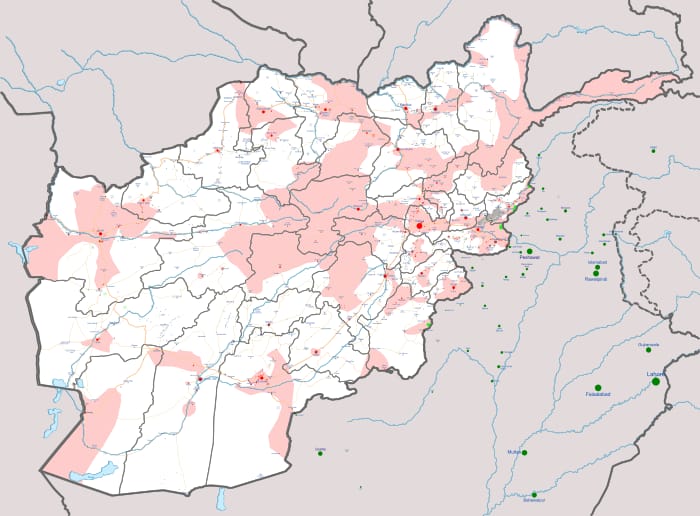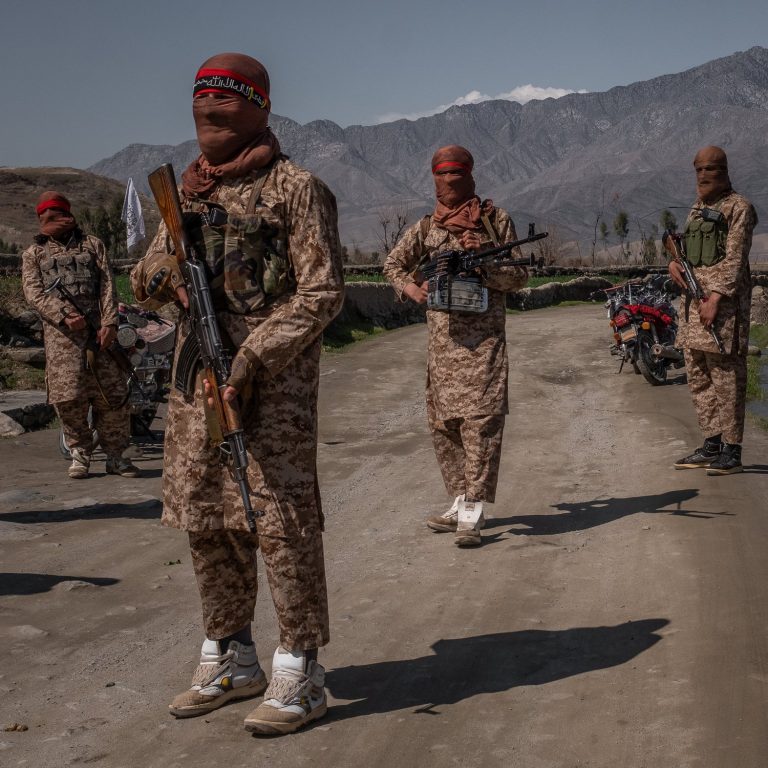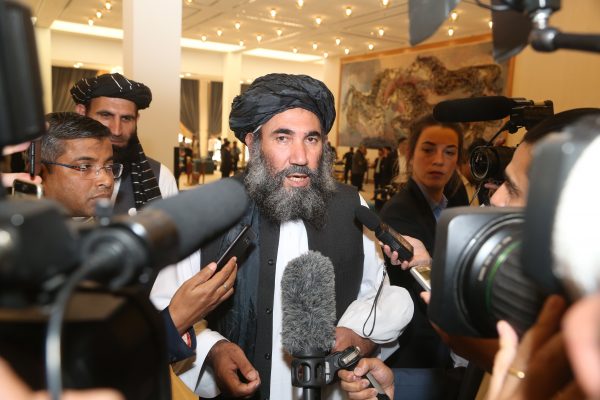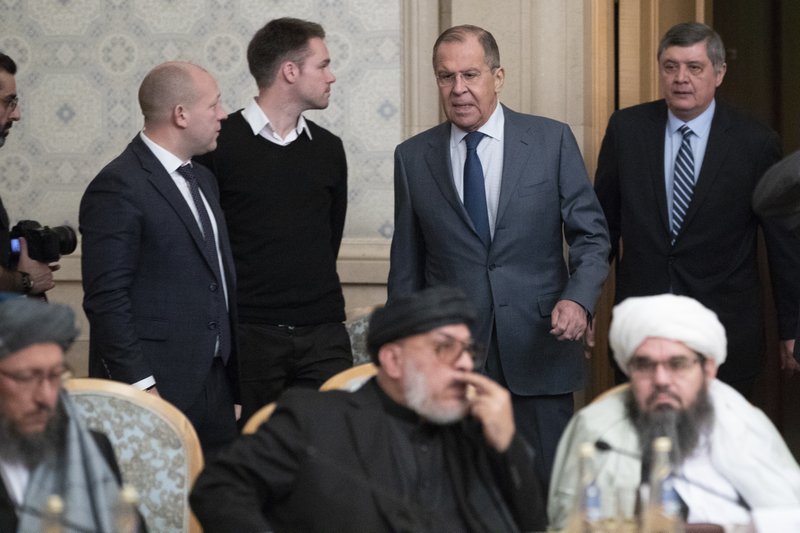Despite Russia seeking to use the pullback of U.S. forces and their allies from Afghanistan to boost own influence across Central Asia, it’s highly likely that in the longer perspective, Moscow will be forced to deploy troops in Afghanistan.
As per Pentagon’s plans, by September 11, the American contingent will have withdrawn. At a meeting with Afghan President Ashraf Ghani and his power-sharing rival Abdullah Abdullah, President Joe Biden vowed continued support for Kabul in a new comprehensive partnership format.
Amid the U.S. pullback, the Taliban have already grabbed control over 50 of the country’s 370 regions. The Taliban have seized the Sher Khan Bandar customs and trade hub (Kunduz province) on the border with Tajikistan. This means the Taliban have gained direct access to Central Asia.

The Talibs have about six months to seal their grip over the entire territory of Afghanistan. The government in Kabul won’t be able to deliver any effective resistance to the Taliban so its ultimate fall is only a matter of time.
The fact that government forces are starting to side with the Taliban proves that, at the current stage, the Taliban will face no rebuke capable of stopping their advance.
The locals in Afghanistan are predominantly Taliban supporters as they believe the organization is able to bring back the long-sought stability and order.
However, since the Taliban have no experience in government administration and neither do they own resources sufficient to restore the economy, it is possible that, in order to retain favorable popular ratings, they will try to continue expanding influence over the neighboring countries in Central Asia. If positioned successfully, the Islamic Emirate could replace the Islamic State – a model of an ideal country for some Muslims. In such a case, this would increase migration flows to Afghanistan, but only on condition that the Taliban take a pro-active stance and pursue their expansion. Without such efforts, even building a state based on Sharia law would fail to improve quality of life in the country. The limited resources within the country would lead to a split in the Taliban ranks and make the organization refocus toward engaging in hostilities outside Afghanistan. Amid the lack of an external adversary represented by a NATO-led coalition of forces and the need to maintain morale, the Talibs would be forced to revisit what has previously proved efficient and economically viable – military hostilities.
Otherwise, the Taliban’s shift toward the fringe and the country’s ultimate economic decline would devastate the Taliban’s reputation, thus significantly weakening their position in the region.
In the Taliban’s lie the Durrani Pashtun tribes. However, plenty of Uzbeks and Tajiks have joined their ranks. Both are potentially able to bring the Taliban to their home countries where they are fighting for power within certain territories or promoting the expansion of the Emirate.
The ties that the Russians maintain with the Talibs are unlikely to become a sufficient reason for the latter to drop their plans for northward expansion. Russia won’t be able to deliver what the Taliban needed before gaining control of the entire Afghanistan. It should be emphasized that not only has al-Qaeda’s influence on the Taliban persisted, it’s likely to have expanded. The bid on the Russians only mattered in the context of gaining control of the whole territory of Afghanistan and the withdrawal of the U.S. troops. However, opportunities are opening up for al-Qaeda-affiliated forces to strengthen presence in Central Asia, while Russia is losing to them in this regard.
In the medium term, the Russians’ goal is to strengthen the Taliban militarily in order to expand own influence in Central Asia, as well as to exert pressure on Turkey and China.
However, such a scenario takes no account of Pakistan’s interests. After all, the country has a key influence on the Taliban. Neither does it consider the interests of Turkey, whose contingent continues its Afghanistan mission.
So the possibility remains that the Taliban will pursue their advance toward other Central Asian countries in order to level their failure in governing Afghanistan and maintain support through expansion and war trophies seized outside Afghanistan.
Russian propaganda outlets affiliated with the country’s defense ministry voice concern about the security situation in Tajikistan, Uzbekistan, and Kazakhstan. However, despite seeing the window of opportunity for boosting the Kremlin’s influence in these countries, Moscow officials have no vision of their further actions in case hostilities spill onto the territory of these states. Russian military potential wouldn’t allow stopping the Taliban’s offensive in the region, while leading to large casualties in the bordering states which the Kremlin believes belong to the same cultural space as Russia. Such developments pose a threat to the Russian Federation, especially in the context of the situation in the North Caucasus. The expanded activity of the Taliban in these countries would lead the latter to search for new allies, including China and Turkey. As a result, in order to stabilize the region and maintain own influence, Russia will be forced to clash with the Taliban directly, both in Afghanistan and in the third countries. Unlike their Syria campaign, the Kremlin shouldn’t count on aviation in fighting insurgency in Tajikistan and Afghanistan – the countries with similar terrain patterns. As a result, in order to maintain their influence in the region, the Russians would have to deploy ground forces, which in turn would critically increase personnel losses in the Russian army.
According to our estimates, Moscow is yet to calculate further scenarios around their support for the Taliban. All planning by Kremlin officials’ is being done exclusively in the format of the Russia-U.S. confrontation. However, once Washington completes its pullback from Afghanistan, the situation will no longer be predictable for Moscow.







